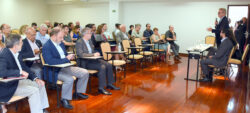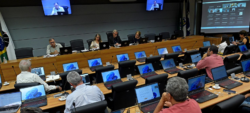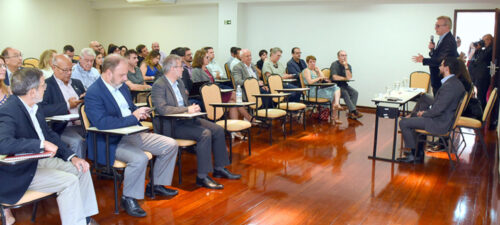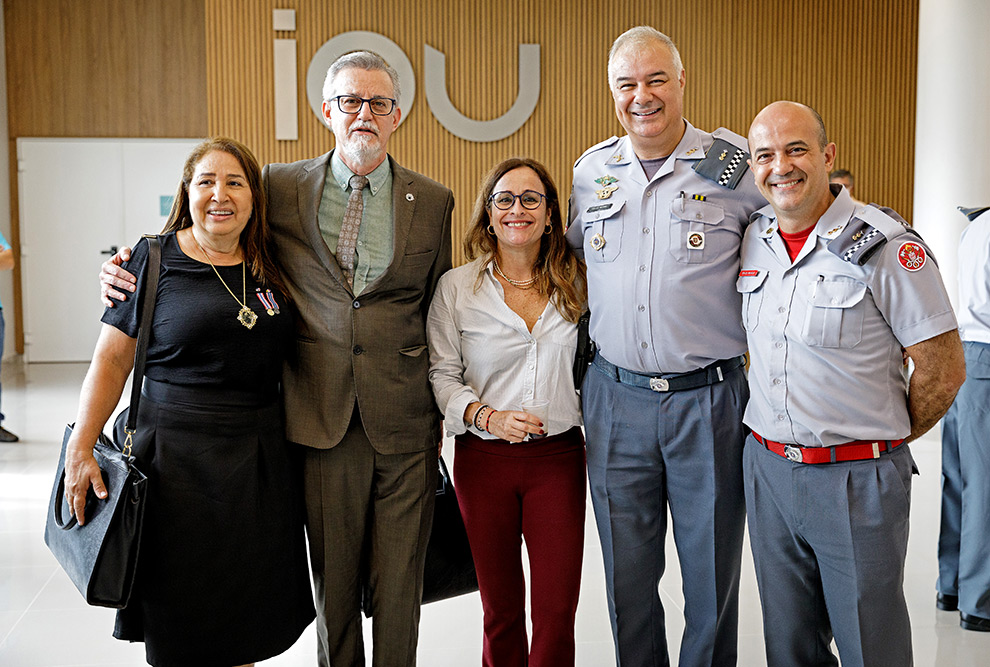
An agreement for an academic cooperation agreement to exchange knowledge between Unicamp and the Military Police of the State of São Paulo began to be discussed this Thursday (23) during the Symposium “Building Security – Reflections and Institutional Collaborations”, held by Campus Experience Secretariat (SVC).
The idea is that Unicamp can contribute to the training of police firefighters in areas essential to the corporation, such as engineering, geology, materials, environment, etc. In return, PMs will be able to share specific technical knowledge accumulated over the years with the University.
“It’s a two-way agreement. We will be able to pass on to them the knowledge that the University has already accumulated on a certain subject and which could be important for their work. The opposite also occurs”, explains SVC coordinator Susana Durão.
According to her, the institutions will be able to work together on specific programs, such as testing more fire-resistant materials. “The University will be able, for example, to develop research into resistant clothing or materials and carry out tests in firefighting schools”, continues Durão.
She recalled that Unicamp has great experts in engineering — materials, agriculture and others — or even in Social Sciences, which, according to the coordinator, increasingly need to understand the dynamics of security in the country.
Susana Durão guarantees that the agreement is not related to patrolling. “It has nothing to do with it. It was more than clarified that property security and the security of our academic community are carried out by SVC. Our model is stabilized, and there is no way to change it anymore”, she guarantees.
Improvement in processes
The Interior 1 Fire Command covers 168 municipalities, has more than 1.500 firefighters and provides services to a population of approximately 10,5 million inhabitants.
“It is a field in which both the Fire Department and Unicamp can use a mass of information, for the purposes of research and academic studies”, says Lieutenant Colonel Eglis Roberto Chiachinini, Fire Commander in Campinas.
For him, the agreement could improve processes in areas of logistics, knowledge of first aid and rescue procedures and in areas such as geology. “Therefore, there is a vast field for predictive studies, which will work both on prevention and emergency care,” he adds.
Lieutenant Colonel Ênio Antônio de Almeida, from the Environmental Police, believes that the agreement is fundamental. “All the technology, the way of thinking and the way we face the issue of environmental preservation, sustainability. The agreement will help us a lot to do our work”, he said.
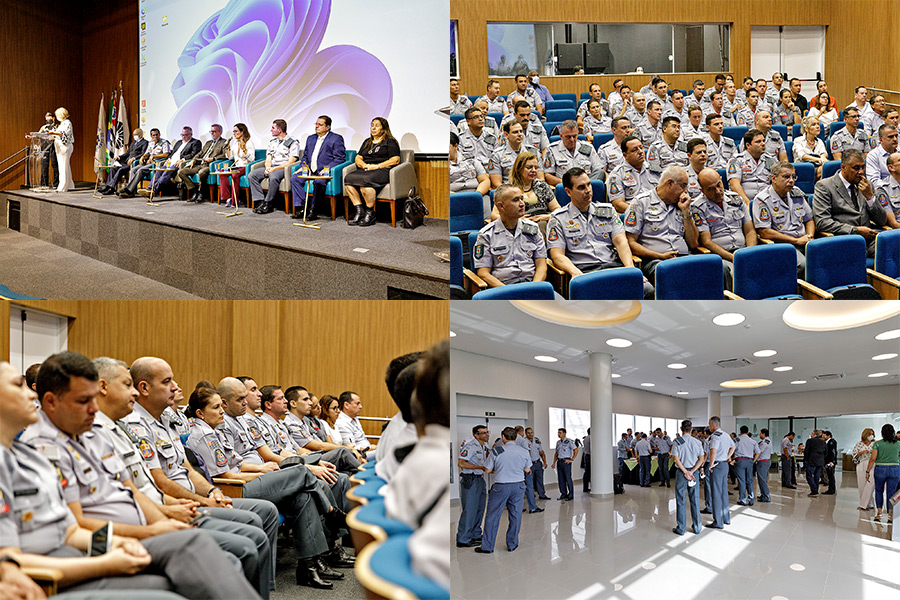
Relationship being built
The opening of the symposium was attended by the rector of Unicamp, Antonio José de Almeida Meirelles. He recalled that the agreement is the result of a relationship that has been built over the last few years.
He cited, for example, an already consolidated project to build a Fire Department headquarters in the Barão Geraldo campus area. Furthermore, he stated that he hopes to count on the Environmental Police in the project to implement the HIDS (International Hub for Sustainable Development), also in the Unicamp area.
“This is a bond that began at the beginning of our management, but which we want to deepen. I hope this is a building block for a long-term relationship that spreads throughout the University”, said the rector.
Building Security
The Symposium “Building Security – Reflections and Institutional Collaborations” featured round tables and lectures and brought together authorities from the state security sector and members of civil entities.
There was discussion on topics such as Community Police, perspectives of integrated Public Security in the macro-region of Campinas and the relationship between security and society.
Experts also discussed the Security Councils as a police intelligence tool and the missions of the Fire Department and Civil Defense.
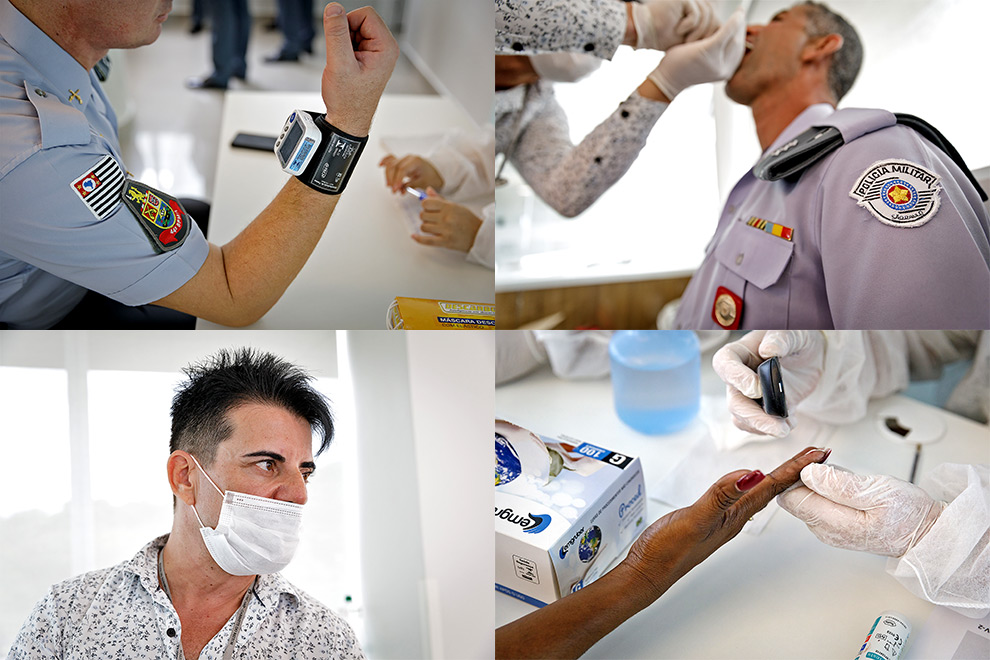
Covid testing
During the Symposium, the Social Actions Front of the Unicamp Task Force against Covid-19 installed a service point to provide a series of services.
The group carried out antigen tests to check whether Covid-19 was still active. In addition, a survey was carried out on the vaccination status of those present. People aged 18 or over who did not have four doses of the vaccine were advised to look for a clinic to schedule the missing doses. In addition, the Front checked blood pressure and measured the participants' blood glucose levels.
Nurse Adilton Dorival Leite says that the Front has been operating since the beginning of the pandemic. “The Social Actions Front practically covered the state of São Paulo. It was in Baixada Santista, in all areas of the municipality of São Paulo and was in several municipalities in the RMC (Metropolitan Region of Campinas). Furthermore, it carried out numerous actions on the outskirts of Campinas,” he says.
According to Leite, the 2022 report showed that more than 10 thousand RT PCR tests and another 5 thousand antigen tests were carried out. Initially, PCR tests were carried out. Since 2022, however, the group has started using the rapid antigen test. Last year, the vaccination status was also included in the action. In the latest actions, in the second half of last year, blood glucose testing and blood pressure assessment were included. “There was a more robust health action”, he concluded.
Originally published on Unicamp website
